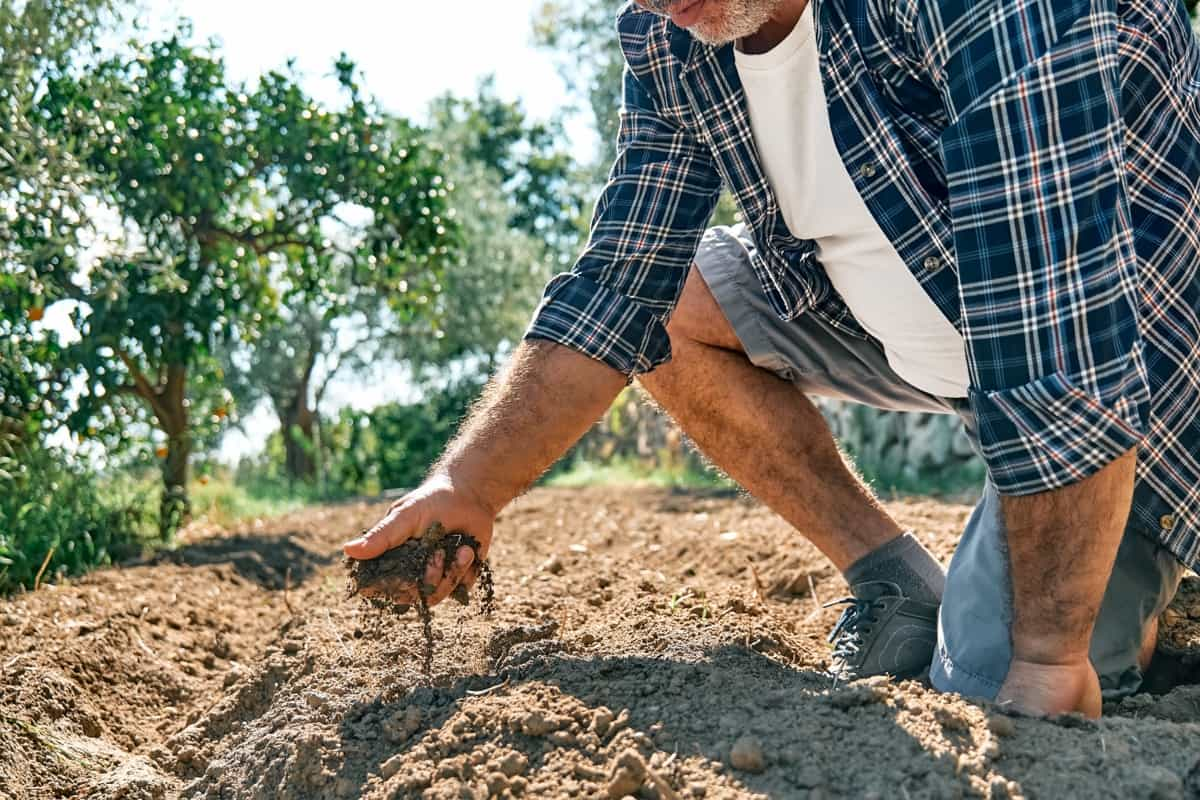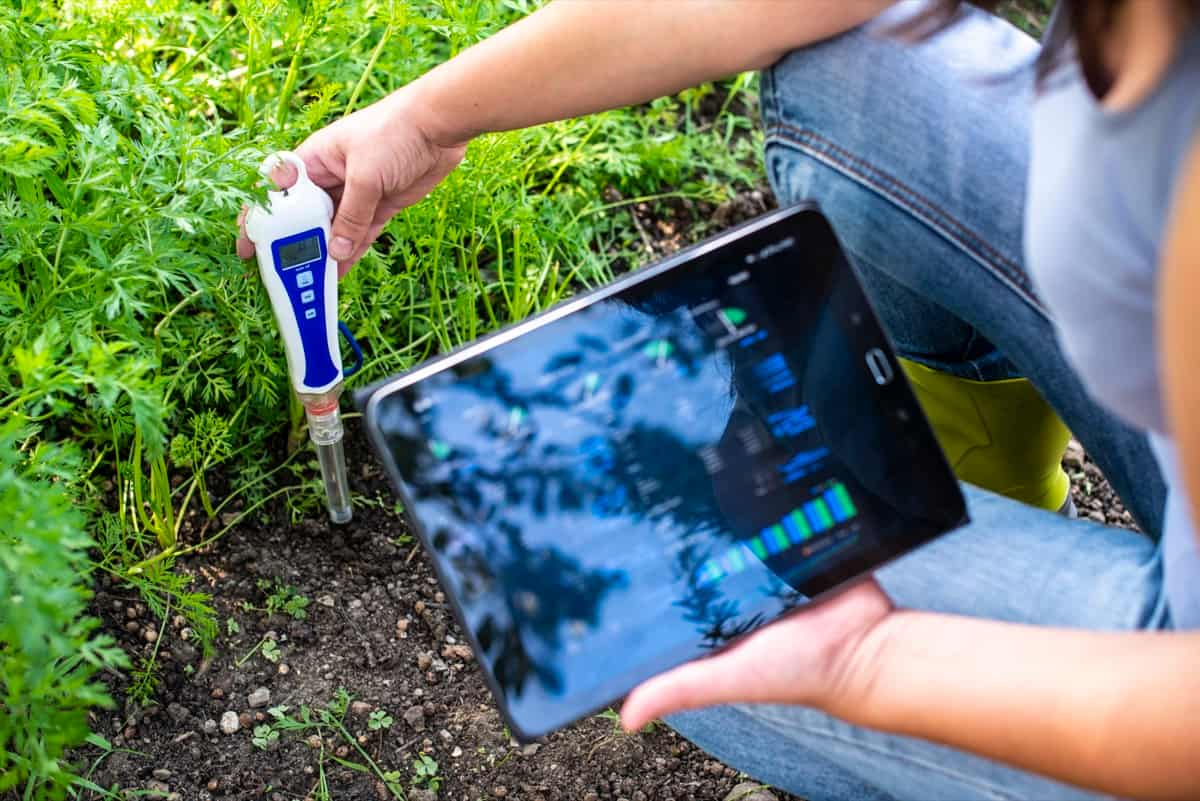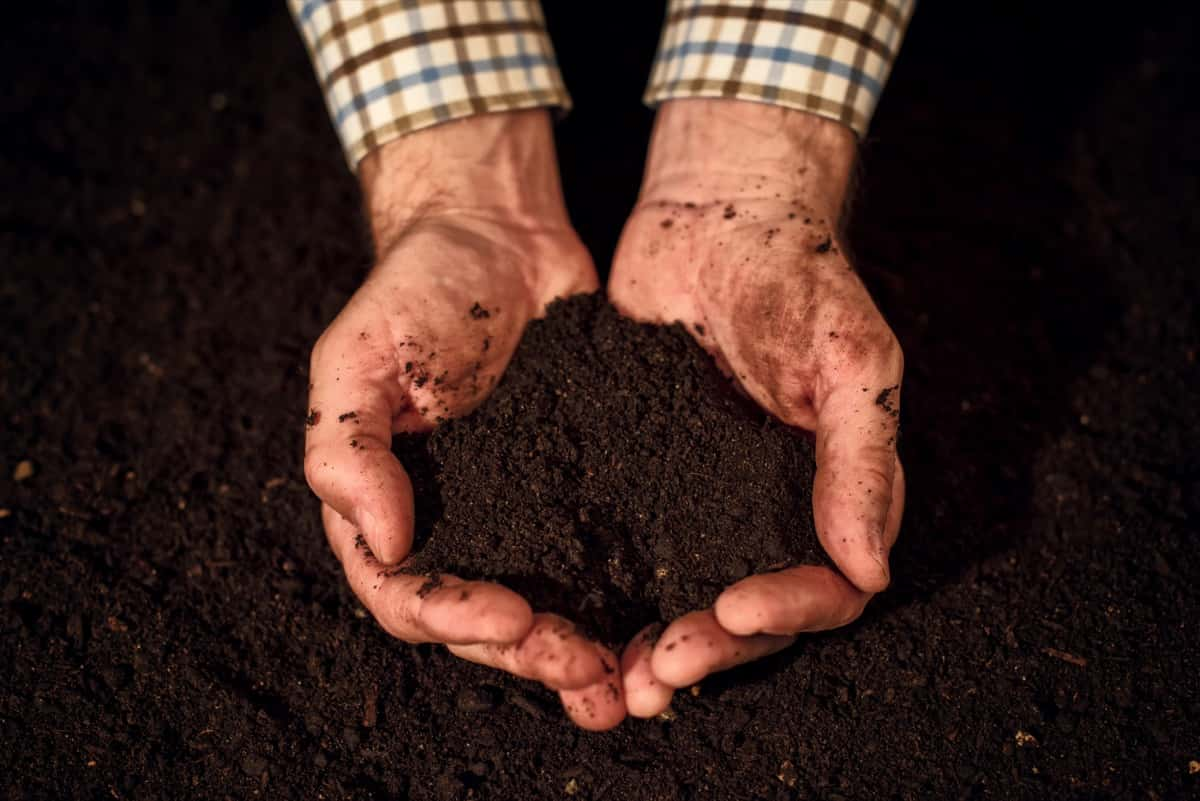Healthy, productive plants start with healthy garden soil. The soil feeds the plants, so it must be fertile to support plant life. The soil must also be loose to allow for root growth, drainage, and air circulation. Healthy soil will be rich in nutrients, minerals, and organic matter.

The organic matter is the key, since it provides nutrition for the soil, promotes a bio-diverse sub-culture in the soil, which benefits plant life, and promotes drainage and aeration for the soil. This article will explore various DIY methods to improve soil quality in your garden to achieve healthy and fertile soil.
What Does Organic Matter Do For The Soil Quality in Your Garden
As a key component of soil quality, organic matter provides nutrients, improves soil structure, binds pollutants, and buffers soils. Humus is a nutrient-rich material formed by the breakdown of organic matter in your soil. Organic matter feeds organisms that tunnel into the soil, create pockets, and lighten it so air and water can reach the roots.
In soil that is largely heavy clay, air, water, and nutrients cannot reach the roots because it compacts easily, becomes waterlogged, and stops receiving water, air, and nutrients. It will make it easier for the roots of the plants to grow and allow the soil to drain better when organic matter is added to clay soil. If the soil is light and sandy, the roots will not be able to gain nourishment because it will drain quickly. Organic matter can also help sandy soil retain moisture and nutrients and hold together better.
DIY Methods to Improve Soil Quality
Apply Composting
Basically, compost is a mixture of organic matter that has been decomposed, and it is the best thing that you can use to improve the health of your garden soil. When compost is worked into the soil, it will improve the soil structure, enable it to retain nutrients, promote good drainage, and absorb water deeply in the soil.
It keeps the soil loose so air can reach plant roots, maintains a neutral pH, and protects your plants from many common garden diseases. And also earthworms and other microbial life in the soil also benefit from compost. In addition to improving aeration and drainage, the worms leave behind their castings that will increase soil fertility.
Cover The Soil With Organic Mulching Materials
Another DIY method to improve soil quality is by using mulch. Mulching involves covering the soil surface with a layer of organic materials such as wood chips, straw, or leaves. Mulch acts as a protective barrier, preventing soil erosion, regulating soil temperature, and reducing weed growth. As the mulch decomposes into the soil, it enriches the soil with organic matter, improving its nutrient content and structure. It stimulates natural growing conditions, maintains consistent soil moisture, keeps soil cool, and prevents weed growth.
Implement Crop Rotation
Implementing crop rotation is an effective way to improve soil quality and prevent the depletion of nutrients. Crop rotation involves changing the type of crops grown in a particular area each season. Different plants have varying nutrient requirements and contribute different organic matter to the soil. By rotating crops with different crops, you can ensure that the soil remains balanced in terms of nutrient availability and minimize the risk of pest and disease buildup.
In case you missed it: Unlocking the Power of Plant Growth Regulators (PGRs): How PGRs Can Boost Crop Yield and Quality

Plant Green Manure Crops and Till Them
An improvement in soil quality is the goal of green manure, a cover crop grown specifically for that purpose. These crops, such as legumes or grasses, are planted and then tilled or mowed down before maturity. The plant material is left on the soil surface or incorporated into the soil, providing organic matter and adding nutrients. Green manure crops also help suppress weeds and improve soil structure, aeration, and water infiltration.
Test Your Soil and pH Adjustment
Soil pH plays a crucial role in plant nutrient availability. Testing and adjusting your soil’s pH if necessary can greatly improve soil quality. Most plants prefer a pH of slightly acidic to neutral. Raising the pH of your soil with materials such as lime is an effective method of raising the acidity of your soil. Conversely, if your soil is too alkaline, add materials like sulfur to lower the pH. Adjusting the pH will ensure that essential nutrients are available to your plants.
Apply Vermicomposting
Vermicomposting is the process of using worms to break down organic matter and produce nutrient-rich worm castings. You can create a vermicomposting system using a worm bin or vermicomposting box. By feeding kitchen scraps, shredded paper, and other organic materials to the worms, you can produce high-quality compost that can be added to your garden soil. Vermicomposting improves soil fertility, structure, and overall nutrient availability.
Plant Cover Crops
It is common for cover crops to be grown for their soil benefits, but some can also provide food for livestock. Planting a cover crop near the end of the season and allowing it to persist throughout the winter has numerous benefits. Cover crops prevent soil erosion by protecting the soil from heavy rains, winds, and snow melt-off.
As a result of the crops, the soil will not compact, and the weeds will not grow during the warm winter months. During the winter, broad-leaf greens such as kale, radishes, turnips, and others make excellent cover crops and food sources. Also, good cover crops for winter are clover, ryegrass, legumes, and peas.
Add Well-Aged Animal Manure
The fertility and health of garden soil can be improved by adding aged animal manure. In addition to burning plants, fresh animal manure may harbor pathogens that are harmful to humans. It is recommended that manure be allowed to age for several months to a year before it is added to the garden soil. If incorporated into garden soil, chicken, cow, rabbit, horse, goat, sheep, and bat droppings are rich in nutrients and will improve soil structure.
You may experience herbicide injury in your vegetable garden when you use animal manures contaminated with pesticides and herbicides. Removing it once it has been incorporated into your soil is difficult. Before purchasing manure, you should ensure the animals didn’t graze on or eat hay treated with pesticides or herbicides.
In case you missed it: Oats Fertilizer Requirements and Recommendations: Management for Optimal Yield

Conclusion
By implementing these DIY methods, you can significantly improve soil quality in your garden. Experiment with these methods to find the best combination for your specific gardening needs. With healthy soil, your plants will thrive, and your garden will flourish.
- Feed Your Flock for Less: Top 10 Tips to Save on Chicken Feed
- Ultimate Guide to Ossabaw Island Hog: Breeding, Raising, Diet, and Care
- Hatching Answers: The Top 10 Reasons Your Chickens Aren’t Laying Eggs
- Eggs and Economics: Breaking Down the Cost of Raising Backyard Chickens
- Defend Your Greens: Proven Methods to Keep Iguanas Out of Your Garden
- Ultimate Guide to Cinnamon Queen Chicken: A Comprehensive Guide for Beginners
- Ultimate Guide to California Tan Chicken: Breeding, Raising, Diet, Egg-Production and Care
- Ultimate Guide to Marsh Daisy Chicken: Breeding, Raising, Diet, and Care
- 10 Types of Chicken Farming Businesses You Can Start for Profits